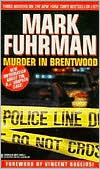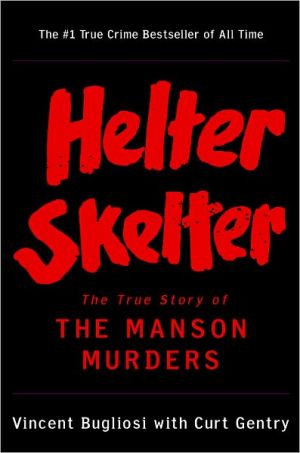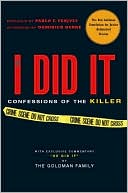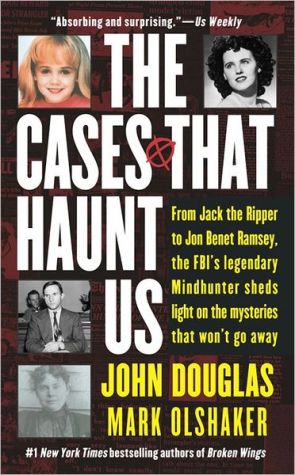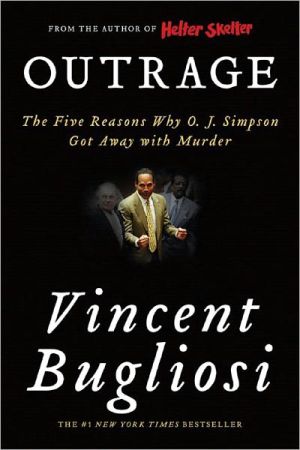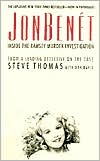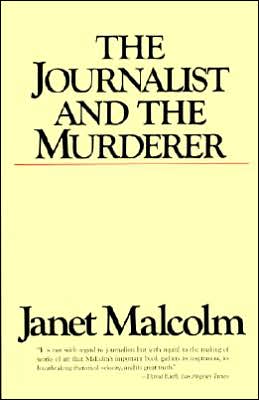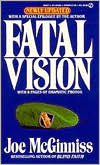Murder in Brentwood
For O.J. Simpson to get away with murder, an innocent cop - a brilliant detective - had to he destroyed. That was the cynical strategy of the Simpson "Dream Team," and it worked. But as certainty about Simpson's guilt grows, so does outrage about the scapegoating of Mark Fuhrman. Now the former LAPD detective tells his side of the story in a damning expose. The veteran detective gives the inside story of why and how Simpson's interrogation was bungled; how police criminalists made previously...
Search in google:
This pivotal witness in the most dramatic murder trial of the decade now speaks for himself--his anger, his apologies, and his regrets.--Diane Sawyer
Chapter 1\ NOLO CONTENDERE\ It's a real tragedy that we have a mountain of\ evidence to convict O.J. Simpson, and he walks free.\ Meanwhile, Mark Fuhrman, with an almost total\ absence of evidence against him, is convicted.\ -BILL HODGMAN, ASSISTANT DISTRICT\ ATTORNEY, LOS ANGELES COUNTY\ On Wednesday, October 2, 1996, I walked into the criminal courts building in downtown Los Angeles to face charges of perjury. In twenty years on the LAPD, I had spent a lot of time there, testifying, filing cases, and waiting in the cafeteria. I had participated in hundreds of trials, but had always been on the side of the prosecution. Now I was the accused.\ As I rode the elevator up to the ninth floor, these familiar surroundings became less comfortable. Flanked by uniform and plainclothes sheriffs, my attorney and I walked down the hall and entered Department 109. For the first time in my life, I sat with the defense. While this court bad not yet decided my fate, in the court of public opinion, many already considered me guilty. My career, my reputation, and my privacy had been taken away from me. But I still had my pride. I sat up straight and made eye contact with everyone who stared.\ The audience was silent. Judge Ouderkirk entered the courtroom and begin to read, "This case number BA 109275, the People of the State of California vs. Mark Fuhrman."\ With the judge's words, I felt my professional life pass away. A hollow, lonely feeling overcame me, and I fought to keep my nerve.\ The perjury complaint against me stated, in part:"While perjury is always a serious offense, it is rare that a witness who has given testimony is prosecuted for that perjury. When there is prosecution, the usual case involves a situation in which the witness has given false testimony about an event related to the crime or provided a false alibi."\ Of course, I had done neither, which the complaint made clear:\ "Here there is no evidence that defendant gave any false testimony about his investigative efforts."\ The judge delivered a brief statement to make sure I understood that in my case it would be be very difficult to prove that my alleged purgery was "material," that it had any bearing on the guilt or innocence of the accused, in this case O.J. Simpson. Materiality is an absolute requirement for a conviction of perjury. And he stated that I had a right to a trial.\ I told him I understood.\ "In the investigation by the attorney general, they found nothing wrong with your criminal investigation on this case."\ The deputy state attorney general, John Gordnier, said to the judge, "That is correct."\ Then the judge addressed me.\ "To the charges of perjury, how do you plea?"\ "No contest." I said. The plea of no contest, or nolo contendere, is not an admission of guilt. While the technical equivalent of a guilty plea, it allows a defendant to maintain his innocence while accepting the plea.\ Judge Ouderkirk read the sentence. "You are hereby sentenced to three years formal probation and a two-hundred-dollar fine. It has been agreed upon that you will serve your supervised probation in your state of residency. And the order of this court is that you will obey all laws. Do you understand this, Mr. Fuhrman?"\ "Yes, your honor."\ Sometimes in life you have to do things that go against all that you believe in, and this was one such time. Perjury is a felony, with a possible sentence of four years in prison. To some people, probation and a fine might appear to be a light sentence, but in my heart it was "life without the possibility of parole."\ As a convicted felon, I can never again vote. I cannot hold public office. I cannot serve as a police officer. I cannot work for any city, county, state, or federal agency where I would have to be licensed. I cannot possess firearms.\ Through the term of my probation, I must report monthly to my probation officer, and I am subject to unannounced visits. I must get approval to travel anywhere outside the five northern counties of Idaho, I can't own any weapons at all.\ In the eyes of the law and the world, I'm a convicted perjurer, a felon. But that tells only a small part of the story.\ In October 1995, Gil Garcetti, district attorney for the County of Los Angeles, said, "What Mark Fuhrman did was not perjury. It was not material to the case."\ Garcetti is in charge of all felony criminal prosecutions in LA. But one month after he made that statement, facing a tough race for reelection and not wanting to anger voters either way, he announced he was passing off the decision to indict me to Dan Lungren, the state attorney general.\ Lungren works with the same law books as Garcetti. Unfortunately for me, Lungren is also a politician, and he wants to be governor. And he was getting lots of public pressure to indict me from people like Tom Hayden, a former member of the Chicago Seven, Jane Fonda's ex-husband, and now a liberal California State senator.\ After several months of anxious waiting, on July 5, 1996, my attorney, Darryl Mounger, said that Lungren was going to press perjury charges against me.\ "Nobody knows this. Nobody should know this." Darryl told me.\ "Then I guess we should stop talking on the cell phone," I responded.\ Lungren's case was flimsy at best. If the state of California were going to prosecute everybody who'd apparently perjured themselves in the Simpson trial, they'd tie up the courts into the next century. But Lungren went after me, because I had already been used as a scapegoat for the trial of the century.\ Over the next few months, Darryl had several meetings with the attorney general's office. Meanwhile, my friends and supporters kept telling me that I had nothing to worry about. Some of them were lawyers and cops who were familiar with the law. They knew that I hadn't committed perjury. Other friends were well-connected politically. They thought that Dan Lungren would come to the same conclusion that Gil Garcetti did—there was nothing to gain and a great deal to lose by indicting me. Of course, they were wrong. They didn't know what I knew, but I couldn't say anything. It was very frustrating to hear their words of encouragement and support, knowing full well that charges against me were pending.\ My anger over the perjury charges has nothing to do with the shame and embarrassment I feel about what I said on the tapes. There is a difference between moral and legal responsibility. I should not have said what I said. But whatever I said, no matter how cruel or stupid, should have had no bearing on the Simpson case. My recorded conversations with Laura Hart McKinny were an attempt to create a fictional screenplay, but my words were used as if they were testimonial fact. There was no place for imagined dialogue in a trial concerning the murders of Nicole Brown Simpson and Ron Goldman. I should never have been asked the questions that led to my perjury conviction.\ Even if everything my critics said about me was true, none of it would have been relevant to the trial. Likewise, even if the tapes had not been a work of fiction, they would not have been relevant to the case or material to Simpson's guilt.\ What did race have to do with Simpson's guilt or innocence? Race was not an issue in the way Simpson's case was handled by the LAPD. Simpson made no complaints about his treatment, nor did he have any cause to complain. He was treated better than any suspect I had ever seen in my twenty years on the force. Simpson was above race. He didn't even live in a racial world. He was accepted and loved by everybody, regardless of race.\ The defense team and the media injected race into the trial, to play on the public's sensitivities and to shift all attention away from the defendant's innocence or guilt and onto an issue that America has struggled with for centuries, and bitterly in Los Angeles over recent years.\ Dan Lungren's office undertook an investigation whose sole purpose was indicting me, yet almost immediately Lungren offered me a plea deal that was as lenient as the law would allow. Why? While Lungren couldn't leave me alone, he also knew that prosecuting me wouldn't be easy. His people wanted to get me without going to trial because they knew they would never win. At best they could hope for a hung jury and retrials.\ But I couldn't win either. I could not afford to mount any kind of defense. I'm retired and live with my wife and children on a small farm. For extra money, I work as an apprentice electrician in town. I already owed nearly $20,000 in lawyers' fees. An effective defense would have cost hundreds of thousands of dollars. A trial would have required me to be in Los Angeles for several months, unable to work. In Los Angeles, I would have had to provide for my own security, and pay for food, lodging, and transportation. Just the daily living expenses would have been far beyond my means.\ The Los Angeles Police Protective League would not help me, even though my alleged crime was well within the scope of my duties as a detective. This group has financed the defense of accused murderers, rapists, child molesters, and drug addicts. All I had done was deny using a racial epithet. But I was too much of a risk to the public image of the League and the department. When I asked the League to help with $17,800 in legal fees, they refused. Over the years I had paid that much in dues. Gary Fullerton, director of the Protective League, tried hard to help me, but he was fighting an impossible battle.\ Darryl Mounger wouldn't be able to represent me pro bono. The case would take months, maybe years. If I got a hung jury, Lungren could try again, but next time around I would have to start bankrupt.\ And what would happen to the city of Los Angeles? I had been in uniform on the street during the Rodney King riots, when some fifty people died. My trial could easily have caused another riot. What if innocent people, my friends, former colleagues or partners were killed? This wasn't my sole consideration, but it weighed heavily on my decision. I also had to think of the LAPD. I didn't want to be responsible for any more negative attention or bad morale.\ Then there were the legal questions. Who would be given the case? Would the presiding judge be able to ignore political and media pressures? In the Simpson trial, Judge Ito hadn't. What kind of jury would I get? If Simpson had been acquitted in repayment for all the wrongs done to blacks by the LAPD, then I could certainly become the victim of that same anger.\ Most importantly, I had to think of my family. Could they go through two or three more years of this? The media would be hounding us again. The expense, hassles, and danger would be enormous. I had to hold my family together, keep our home, and provide for their future. I had to stay out of prison. I had to hope that I could begin to put this all behind us and have some kind of life.\ After I weighed my options and the potential consequences, I decided to accept the attorney general's plea offer. The only person I told was my wife. She didn't understand.\ "How can you plead guilty to something you didn't do?" "Because this world is not made of sugar and spice and everything nice," I explained. "We have a Constitution, but humans enforce it."\ Twenty years fighting crime on the streets had taught me a great many lessons, but it wasn't until the Simpson trial that I saw how wide the gap was between the law and how it is enforced, between our ideals and noble words, and the way the system actually works. Out on the street, at least you know what to expect, and you can be prepared. In the criminal justice system, all the law books and fine talk too often allow criminals to get away with breaking the law.\ On the other hand, policemen never get the benefit of the doubt; in the public's mind, they are always guilty until proven innocent. For two years I have been listening to people who don't know me, and many who think they know me, blaming me for a criminal investigation and trial that went wrong. I never wanted to be rich, or famous, or anything but a good cop.\ Ever since the beginning of the trial, I have tried my best to just do my job and keep quiet about it. I was willing to take the blame while everyone else took the fame. I didn't like the way things turned out, but I was willing to put it all behind me and start over. I received countless offers from publishers, news anchors, radio, television and print journalists, but I said nothing. Even during the height of the media frenzy, I kept my peace. And once the trial was over, when I was retired and under no professional obligation to keep quiet about the case, I still wouldn't talk. I moved out of California, wishing only that my family and I be left alone. I told people that if they pushed me too far, they wouldn't like what happened. Still, they kept pushing. Now, after the plea, I have no choice but to speak out.\ So I decided to write a book and tell my story of this case.\ I apologize for the pain I caused with my insensitive words. However, one thing I will not apologize for is my policework on the Simpson case. I did a good job; I did nothing wrong. Yet I was blamed when the case fell apart. Throughout my ordeal, many people wanted me to fight back. Now I am.\ Confessions of a White House Ghostwriter\ Five Presidents and Other Political Adventures\ \ \ By James C. Humes\ \ Regnery Publishing, Inc.\ Copyright © 1997 James C. Humes. All rights reserved.\ TAILER
PROLOGUExxi PART ONE: The Investigation CHAPTER 1 Nolo Contendere3 CHAPTER 2 Murder in Brentwood11 CHAPTER 3 The Rockingham Estate25 CHAPTER 4 Costly Errors45 CHAPTER 5 The Interrogation59 CHAPTER 6 Slow-Speed Pursuit77 CHAPTER 7 The Scheme Team87 CHAPTER 8 Witness for the People93 CHAPTER 9 The Defense Card105 CHAPTER 10 The Allegations and the Facts119 CHAPTER 11 Living in a Fishbowl133 CHAPTER 12 The Judge and His Wife141 CHAPTER 13 The Evidence155 PART TWO: The Trial CHAPTER 14 The Prosecution's Case171 CHAPTER 15 The Murder Weapon193 CHAPTER 16 Hypothesis of a Murder207 CHAPTER 17 Marcia's Case217 CHAPTER 18 Darden for theDefense227 CHAPTER 19 Taking the Stand235 CHAPTER 20 Crossing the Line243 CHAPTER 21 Center Stage255 CHAPTER 22 Defending the Indefensible263 CHAPTER 23 The Tapes269 CHAPTER 24 Taking the Fifth285 CHAPTER 25 Closing Arguments293 CHAPTER 26 Verdict301 CHAPTER 27 Aftermath313 APPENDIX A Interrogation Text327 APPENDIX B Search Warrants353 INDEX381
